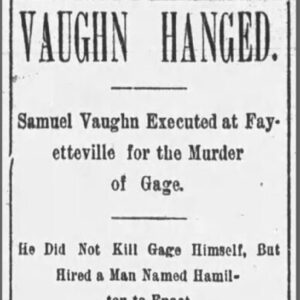 Sam Vaughn Execution Story
Sam Vaughn Execution Story
Entry Category: Law Enforcement - Starting with S
 Sam Vaughn Execution Story
Sam Vaughn Execution Story
Sarber, John Newton
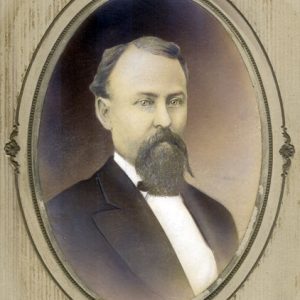 John Sarber
John Sarber
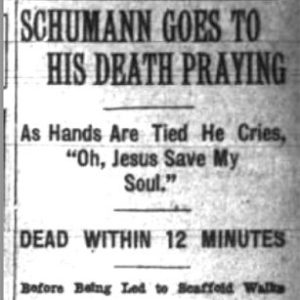 Clarence Schumann Execution Article
Clarence Schumann Execution Article
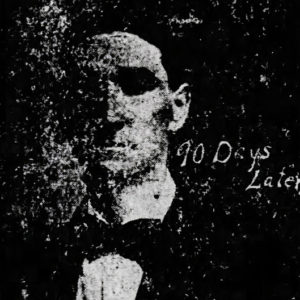 Clarence Schumann
Clarence Schumann
Schumann, Clarence (Trial and Execution of)
Scott, George Washington
Scott, Ralph Downing, Sr.
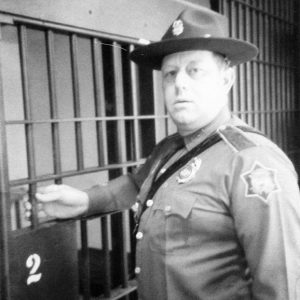 Eddie Seaton
Eddie Seaton
 Mark Shank Execution Story
Mark Shank Execution Story
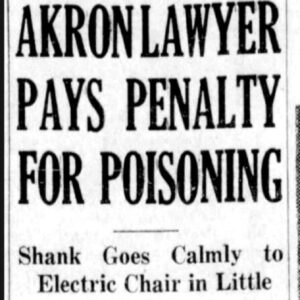 Mark Shank Execution Story
Mark Shank Execution Story
Shank, Mark H. (Execution of)
Sharp, William (Murder of)
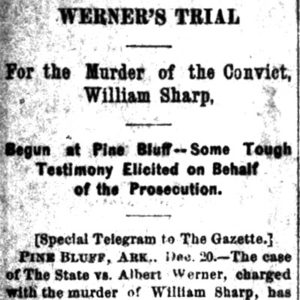 William Sharp Murder Story
William Sharp Murder Story
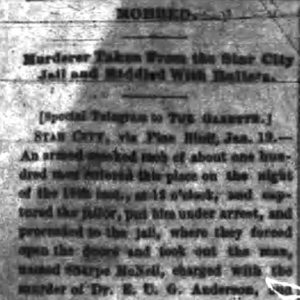 Sharpe McNeil Lynching Story
Sharpe McNeil Lynching Story
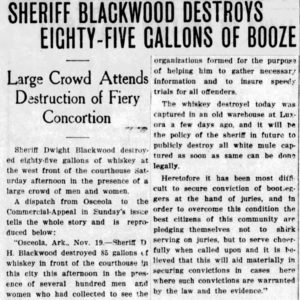 Sheriff Destroys Booze
Sheriff Destroys Booze
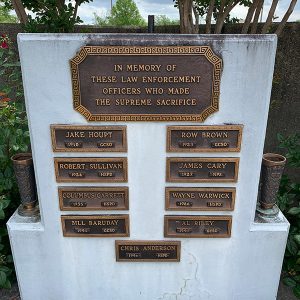 Sheriff's Memorial
Sheriff's Memorial
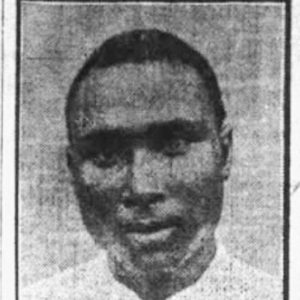 Lee Simms
Lee Simms
Simms, Lee (Trial and Execution of)
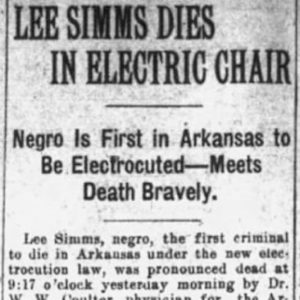 Lee Simms Article
Lee Simms Article
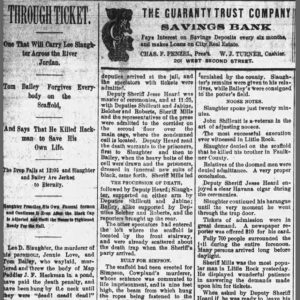 Slaughter and Bailey Execution Story
Slaughter and Bailey Execution Story
 Pamela A. Smith
Pamela A. Smith
Smith, Pamela A.
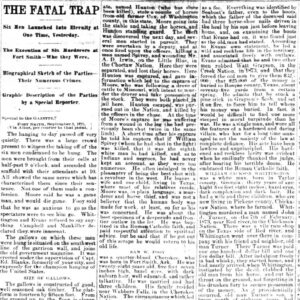 Smoker Mankiller and Samuel Fooy Execution Article
Smoker Mankiller and Samuel Fooy Execution Article
Speers, J. E. (Execution of)
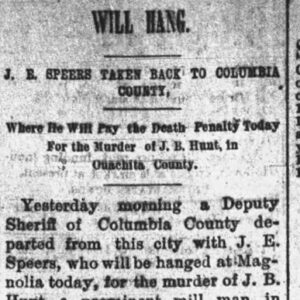 J. E. Speers Execution Story
J. E. Speers Execution Story
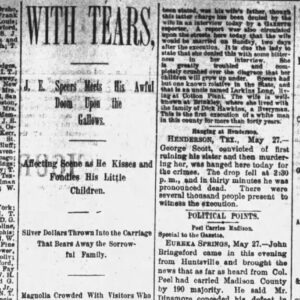 J. E. Speers Execution Story
J. E. Speers Execution Story
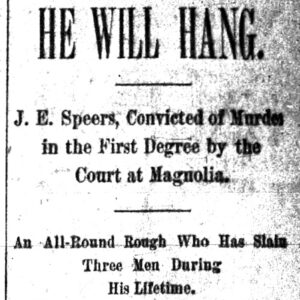 J. E. Speers Execution Story
J. E. Speers Execution Story
Staner, Tom (Trial and Execution of)
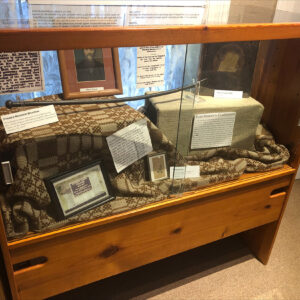 Tom Staner Exhibit
Tom Staner Exhibit
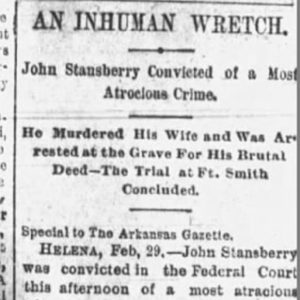 Stansberry Execution Story
Stansberry Execution Story
Stansberry, John (Execution of)
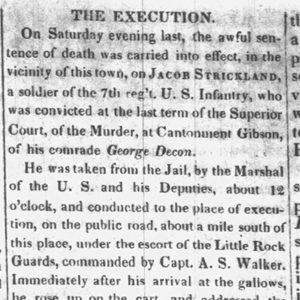 Strickland Execution Story
Strickland Execution Story




